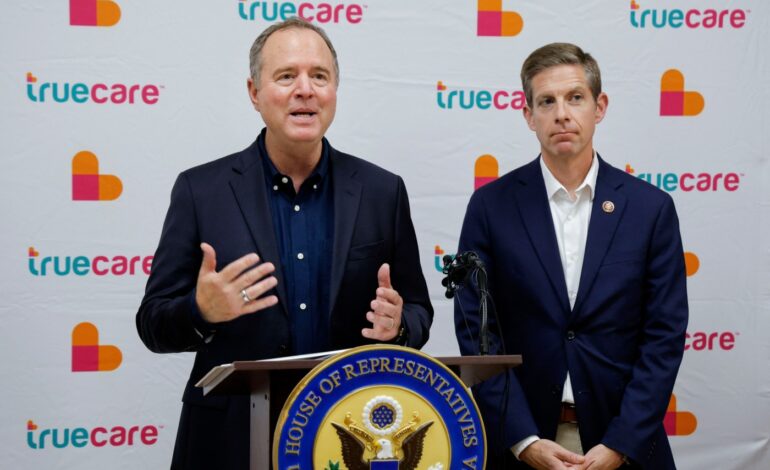Democrats Demand Health Subsidy Restoration Amid Budget Crisis

UPDATE: With a potential government shutdown looming on September 30, U.S. Rep. Mike Levin and Sen. Adam Schiff held an urgent press conference in Oceanside, California, demanding the restoration of health insurance subsidies crucial for millions of Americans. The lawmakers are spotlighting the need to renew enhanced premium tax credits, which are set to expire on December 31.
As Congress faces a budget stalemate, officials warn that failure to extend these credits could leave 5 million Americans without affordable coverage through the Affordable Care Act exchanges. In California alone, the loss of these subsidies would trigger a staggering 97% average increase in monthly premiums for those enrolled in exchange plans like Covered California.
Levin underscored the urgency of the situation, stating, “What we are seeking in these negotiations over the budget that are due in days is pretty simple and reasonable: don’t raise health insurance costs on millions of people.” Schiff echoed this sentiment, urging Congress to act swiftly to prevent financial hardship for families.
The implications are severe. A recent analysis estimates that around 120,000 enrollees in San Diego County would face an average premium hike of $125 each month if the credits are not renewed. Furthermore, around 660,000 Californians statewide would be impacted, risking their access to necessary health care services.
During the news conference, held at the TrueCare health center, a facility known for providing primary care to low-income residents, the center’s president, Michelle Gonzalez, expressed deep concern. “Health centers are facing skyrocketing costs and operating on razor-thin margins,” she stated. “We are not ready to absorb the care for so many additional residents without medical coverage.”
Republicans have criticized the Democrats’ strategy as political maneuvering. Jonathan Wilcox, deputy chief of staff for Rep. Darrell Issa, remarked, “Mike Levin and Adam Schiff are demanding a government shutdown if they don’t get billions more in government spending.” He called it “textbook political blackmail” and questioned the viability of linking the budget deal to health care subsidies.
The stakes are high as both parties prepare for critical negotiations. Levin mentioned that a meeting between Congressional leadership, the President, and Republican leaders was scheduled but did not materialize, intensifying concerns about a possible shutdown.
Schiff challenged the opposition, stating, “I don’t know why they’re fighting so hard for the right to raise people’s health insurance costs. That seems untenable to me.”
As the clock ticks down to the September 30 deadline, the pressure mounts for Congress to reach a consensus. The need for action is urgent, with millions of Americans relying on the outcome of these discussions to maintain their health coverage.
What happens next could determine the future of health insurance for countless families across the nation. Stay tuned for developments on this critical issue.






